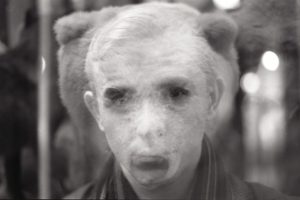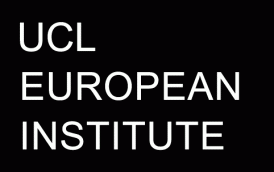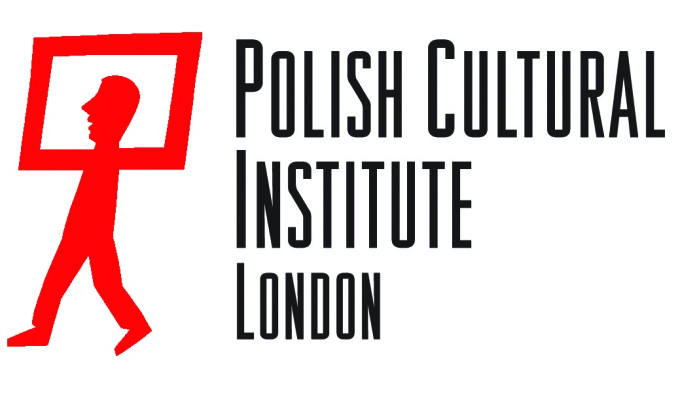London is a global city of global poets
SJ Fowler in conversation with Marek Kaźmierski

TRUTH OF THE BEAR BY ALEXANDER KELL
eML / Can you tell us a little bit about yourself, and how you came to poetry, your cultural background (are you English English, and is it as simple as that?) and how you see the trajectory of your literary journey shaping up?
SF/ I came to poetry in my mid twenties, less than five years ago. So … an immensely truncated version … I grew up in south west England, really all I was interested in was martial arts and wrestling. I travelled widely in the year after school learning martial arts, was a doorman too – quite a violent lifestyle. Then I went to university and barely studied, just scraped through. I fought professionally during that time and that was my life. I was in a pretty bad car crash and that lost a lot of money and time, and after having to do some heartless jobs to make things meet I went travelling again. That was a long, lonely trip and I happened, by pure chance, to take with me some books I bought in a charity shop while waiting for a train, Penguin’s modern European poets Gunnar Ekelof and Tadeusz Rozewicz. It changed my life, I had nothing else to do but read them, over and over. My beginnings in poetry were always translated! More than that I was immediately drawn to the avant garde through my studies in Philosophy, I returned to undertake my masters in London. My work immediately started to look beyond the UK, and this wasn’t even really a dualistic notion, England / Abroad, because I don’t really enjoy England beyond London and I don’t know what it is really, and London is not ‘England’. This is a global city of global poets. Oh, and I have Swedish and Welsh ancestry as well as English, but I am 100% monolingual, sadly.
The Maintenant Project – it’s success is so richly satisfying, if you hadn’t invented and driven it forward, the poetic landscape around us right now would be much the poorer. How did it come about and has it turned out as you expected?
When I starting out I got to read in different countries quite early and it really just made me realise how much work that was contemporary was being occluded in the UK because it was contemporary, and how much people proffered work from beyond their language only when it had reached the unfortunate respectability of middle age. It stunned me in fact, that so much incredible work was unavailable. Moreover, I learned so much about the possibilities of community from these experiences outside of London, it informed so much of what I wanted to achieve with the readings. So I began the interviews to really represent what I thought was grossly under appreciated – contemporary European work and an understanding of just how radical and wide ranging and exciting poetry has become in the new millennium. I actually put on the first reading to impress a girl, who was from the country of the poets (it worked, in the end) but while I was a little unwilling at first, the process became so informative to my own work and practice it was actually hard to stop. I never really saw the series as featuring 100 poets and interviews and so many events as we’ve done. I try to resist my natural urge to formalise and systemise such things, I’ve just gone with the flow and having met so many deeply interesting and generous poets and people the project blossomed.
What is your relationship with the English language? How has working with so many different tongues and translation projects affected your own practice?
It is the only language I possess in any real or cogent manner. Hard not to sound flippant in print, as it were, but I deliberately under-conceptualise ideas about my relationship to the language. I realised early on that until the moment comes that I possess another language I am blind to all meaning outside of English and this is something that can produce great value if embraced, rather than resisted. There is something to be said for revelling in a certain kind of ignorance. I smash English, I break syntax, meaning, sentence structure – I write in every different way my subject requires me to write in – I work with sound poetry, attacking the roots of meaning, I work with concrete poetry, making the visuality of letters the meaning of the poem. This gift to not be precious, to not fetishise, or romanticise, my own tongue has undoubtedly been influenced by the plethora of languages I’ve worked with in Maintenant, the volume of poets and translators and how English is all their unifying speech.
How do you perceive the world of poetry being affected by the vehicle that is the internet? Is it all a rosy picture when it comes to self-expression and communication between individuals and cultures?
I think the fundamental news is good, but purely in the realm of access and communication. The world of 30 years ago is truly unrecognisable because of the internet, and its possibilities. It has firmly made history historical when it comes to the reasons, influences, ideas and culture of poets. The thing about the internet, it’s inherent character, is that it is so immense and ever growing that all one can do when commenting on its potentiality and effect is to make weak assertions. The internet is a space of community and many are hermetically sealed by its members – it is also a place of change, and what those changes will bring to our writing and our world I don’t know.
Do you think poetry is changing in response to current developments within society? Is it becoming part of what is being termed “the Third Culture” and as a result more relevant or engaged or any other term you might choose to define arts which are getting to grips with their own alienation from mainstream reality, hence becoming more connected with events outside of the cultural milieu?
I do, absolutely, but that supposes I know how poetry was, before I was around, or that I can possibility understand it now. With the brackets on, I think poetry has not moved anywhere, the mainstream has moved. In a very short space of time, fifty years here, less elsewhere – the dominant taste of culture has shifted to a democratised model. The majority of people make up the majority of taste. Their taste is not for poetry, not for something that should be complex, as life is complex, that will not offer ease, that will not turn away from expiry, confusion and so on. Poetry is not an escape downwards, into the cellar. It allows you up, onto the roof, but you have to fucking climb to get up there. People don’t want to do that, and that’s completely fine by me. The people who like poetry now, generally speaking, are the same in relative number and education and character (both good and bad of course) who did one hundred years ago, it’s only since then the rest of society has been allowed to have their say. So poetry is not alienated, to me. It is an utterly personal pursuit, wholly about the individual and their attempts to understand, when reading, or express, when writing, the infinite ambiguous complexity of their thousands / millions of experiences, sensations, emotions that make up their life and their being. This is a completely secular and profound engagement with our possibility, and it is for us, alone, to mulch through life with poetry. When we share ideas or meet to read, well then it’s about people first, people who share an interest, but it ends there. And so poetry, again just for me, has its limits and expansiveness built within it, and questions of its place within or without culture are arbitrary, I don’t care about them at all, because I’m happy alone with my books, humbled by their immensity.
June 2013.




Recent Comments